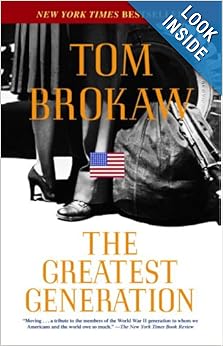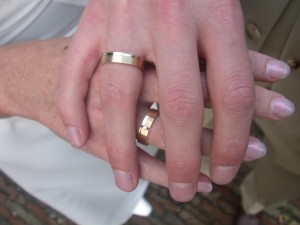I came across a new article on the Millennials (those born approximately 1982 to 2004) which I thought was worth sharing.
Not because it was incredibly insightful, research-based, or even because it is right. I am sharing it because it shares a positive perspective of the strengths of our youngest generation.
Yes, take a breath. It is a POSITIVE article about the Millennials.
According the author, here are a few of their strengths:
They are inherently more adaptive, they are idealistic, they are tolerant of differences. They are aspirational in all the right ways. At our prodding, they worked harder in high school than we ever did in college.
As a result, the older ones (26 to 33) are the best-educated segment of young adults in American history, according to a Pew Research Center study of millennials that was released in March.
Unfortunately, the author knows that he has to apologize again and again for being so foolish as to see them as positive force within our society. I wish there were more people who would speak up, and defend them. The Millennials shouldn’t be defending them by proving that they truly are the best. The Millennials shouldn’t be defending through proving “such and such” statistics are wrong. We shouldn’t be defending them because individually they each deserve it.
We defend them because it is the right thing to do. We defend them because there is no positive result from bashing another generation. We defend them because they are not a group of “others,” but they are part of us. They are humans, and they are our offspring.
Why is it so hard for us to grasp the destruction that comes from generation bashing?
 I am not a fan of generation wars. Tom Brookaw’s book The Greatest Generation is a great tribute to those of that era; however, the title and concept that other generations are not as great is unfortunate. Maybe some people deem inter-generational conflict and competition as healthy and makes a society (and the church) more productive. This is only true if you value productivity (if that is even truly an outcome), over unity.
I am not a fan of generation wars. Tom Brookaw’s book The Greatest Generation is a great tribute to those of that era; however, the title and concept that other generations are not as great is unfortunate. Maybe some people deem inter-generational conflict and competition as healthy and makes a society (and the church) more productive. This is only true if you value productivity (if that is even truly an outcome), over unity.
It is work to understand and appreciate other generations. However, bridge-building between generations is essential to the health of our society. I know that it is essential to the healthy of the church.
What voice have you had in this conversation?
What jokes have you made about Millennials?
What assumptions do you hold against other generations?
As we reject ageism (judging others based on their age), we will become a healthy society and a healthier church.






 Do you sometimes feel as if you identify with Millennials more than your own generation? Is it because you are “young at heart”? Or do you simply have different values than your peers?
Do you sometimes feel as if you identify with Millennials more than your own generation? Is it because you are “young at heart”? Or do you simply have different values than your peers?

 What do your parents owe you?
What do your parents owe you?

 Involving your parents can also make a small problem, into a bigger one – involving more people. Matthew 18:15-17 talks about how we are to seek resolution with the person who offended us. One emerging adults says, “It’s not hard for me to leave parents out because it’s not their place to be in the middle of my and my fiance’s relationship. That’s just plain unhealthy.” Involving other people–even parents–can lead to people taking sides and make things messier and more complicated, especially since third parties often have limited information about the conflict.
Involving your parents can also make a small problem, into a bigger one – involving more people. Matthew 18:15-17 talks about how we are to seek resolution with the person who offended us. One emerging adults says, “It’s not hard for me to leave parents out because it’s not their place to be in the middle of my and my fiance’s relationship. That’s just plain unhealthy.” Involving other people–even parents–can lead to people taking sides and make things messier and more complicated, especially since third parties often have limited information about the conflict.

 I am sorry that what I am doing is not to your liking. Not everything turned out as you expected. Disappointment is hard. I never promised that this would be easy. I know that you may want to change your mind. I cannot make you stay, but please hear me out before you leave.
I am sorry that what I am doing is not to your liking. Not everything turned out as you expected. Disappointment is hard. I never promised that this would be easy. I know that you may want to change your mind. I cannot make you stay, but please hear me out before you leave. While you wait for this storm to cease and your pain to fade,
While you wait for this storm to cease and your pain to fade, I wonder what it will look like when it is completed. It is fun to dream about, but today I am looking at what it is now – and that isn’t the best.
I wonder what it will look like when it is completed. It is fun to dream about, but today I am looking at what it is now – and that isn’t the best.
 If Miss Completely Wrong keeps throwing herself at you, while possible Miss Rights are running away,
If Miss Completely Wrong keeps throwing herself at you, while possible Miss Rights are running away, My two year old comes to me on a regular basis and says, “ungry.” Tobi is still working on his H’s. So we head to the kitchen, open the cupboard, and get out a snack for him. But that is not enough, I also help him into his chair at the table.
My two year old comes to me on a regular basis and says, “ungry.” Tobi is still working on his H’s. So we head to the kitchen, open the cupboard, and get out a snack for him. But that is not enough, I also help him into his chair at the table. Our current obsession with Big Churches and Big Preachers is built upon this concept that church is the place we are fed- the great spiritual feeding trough.
Our current obsession with Big Churches and Big Preachers is built upon this concept that church is the place we are fed- the great spiritual feeding trough.